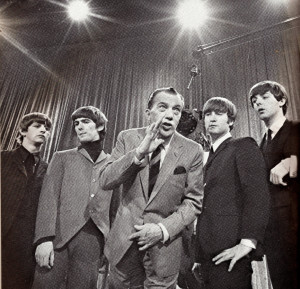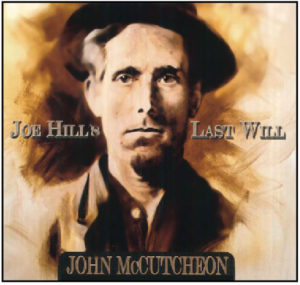The 2 million member strong Service Employees International Union (SEIU) has endorsed Hillary Clinton for president, calling her a leader who will stand up for people building a movement to secure a better future for their families. In a press release, SEIU explained that the decision follows much debate and discussion, as well as a months-long member engagement process.
Tag Archives: recent news
IUF Fights Multi-National Union Busting
According to the International Union of Food Workers (IUF), union busting by multinational companies is violating the rights of courageous workers overseas.
In West Bengal, India, workers at three warehouses, which are contracted exclusively to the PepsiCo, were fired for defending their rights as workers. The 162 workers were harassed before being let go for forming a union. The beverage giant then offered to secure re-employment, if they agree to never join a union. Supported by the IUF, some of the workers formed an Action Committee to fight for their rights. Together they are demanding the workers be offered jobs at warehouses or in PepsiCo’s own operations, with full back pay and guarantees that their rights are protected.
Phillips Seafood, which runs a chain of seafood restaurants in the US, is being blasted for brutal treatment of workers in Lampung, Indonesia, where it processes crabmeat. Sixty percent of the mostly female workforce has no permanent jobs and are kept on “standby.” When a IUF-affiliated union attempted to begin negotiations for permanent contracts for long-term employees, 205 workers were terminated by text. Jobs were then outsourced to illegal “mini plants” operated from private homes in the forest. Workers at these plants suffer constant cuts. They have no insurance for work-related injuries, so they mut continue to work with open cuts or be out of work until healed.
To show support for these workers log on to the IUF website: http://www.iuf.org.
Trumka Calls for Defeat of Trans-Pacific Partnership
Upon finally getting a chance to read the text of the Trans-Pacific Partnership (TPP), AFL-CIO President Trumka released a statement that said, in part, “… we are deeply disappointed that our policy recommendations and those of our trade reform allies in the environmental, consumer, public health, global development, and business sectors were largely ignored. … it is clear that the threats of this expansive new agreement outweigh its benefits—for good jobs, for democracy, for affordable medicines, for consumer safety, and for the environment. The hardworking families of the AFL-CIO will join with our allies to defeat the TPP.
The AFL-CIO’s list of top five scariest things about TPP includes: It will push wages down; allows too much discretion in the enforcement of labor rights; currency manipulation could wipe out any tariff reductions for US exporters; foreign companies will be allowed to bypass American courts; and countries outside the agreement will benefit from tariff reduction and not be obliged to follow the agreement’s rules.
AFM Recognizes CMA Award Winners
Congratulations to all the AFM members—winners, nominees, and members—honoured at this year’s Country Music Association (CMA) Awards. Among the awards that went to AFM members were:
New Artist of the Year: Chris Stapleton of Local 257 (Nashville, TN)
Album of the Year: Traveller, Chris Stapleton
Male Vocalist of the Year: Chris Stapleton
Musical Event of the Year: Raise ’em Up, Keith Urban of Local 257, featuring Eric Church of Local 257
Musician of the Year: Mac McAnally of Local 257
SEIU Endorses Clinton for President
The 2 million member Service Employees International Union (SEIU) has endorsed Hillary Clinton for president, calling her a leader who will stand up for people building a movement to secure a better future for families. In a press release, SEIU explained that the decision follows a much debate and discussion, as well as a months-long member engagement process. “Hillary Clinton has proven she will fight, deliver, and win for working families,” says SEIU International President Mary Kay Henry. “SEIU members and working families across America are part of a growing movement to build a better future for their families; Hillary Clinton will support and stand with them. This movement for economic, racial, immigrant, and social justice is poised to turn out a vote in November with their families and communities and keep pushing elected officials to deliver once in office.”
US Airport Workers Strike
On Wednesday, November 18, about 2,000 airport workers at seven hubs went on strike to over bad wages and threats against unionizing. Among them were plane cleaners and baggage handlers at New York’s Kennedy and LaGuardia airports, as well as Newark Liberty, Chicago O’Hare, Boston, Philadelphia, and Fort Lauderdale. The strikes, part of a growing national campaign for a $15-an-hour minimum wage, were expected to last through Thursday.
New Bill Would Expose Executives Entering Public Service for Wrong Reason
The Financial Services Conflict of Interest Act, introduced by Sen. Tammy Baldwin (D-WI) and Representative Elijah Cummings (D-MD), would expose senior executives who receive “golden parachutes” as incentives to leave Wall Street to go into government service. Executive compensation plans should be designed to retain talent, not encourage resignations. Why should shareholders subsidize the second career choice of executives, and more importantly, what are the motivations of these companies?
“Only in the Wonderland of Wall Street logic could one argue that this looks like anything other than a bribe. Once upon a time, part of the nobility of joining public service was the willingness to make the financial sacrifice. We want people entering public service because they want to serve the public. Frankly, if they need a [golden parachute], I’d rather them stay away,” said Sheila Blair, former chair of the Federal Deposit Insurance Corp in a Fortune article.
New Line Cinema Signs AFM Agreement
The AFM announced that New Line Productions, Inc. (New Line Cinema) has signed onto the AFM’s Basic Theatrical Motion Picture Agreement. This agreement sets wages, working conditions, healthcare, and pension contributions for musicians working in film recording, sidelining, and music preparation. The agreement requires theatrical motion pictures produced by New Line Cinema in the US or Canada to be scored in the US or Canada—a positive step in the Federation’s campaign to prevent the offshoring of sound recording work in the film industry. The addition of New Line Cinema as a signatory to the AFM’s Film Agreement will result in additional session work, health, and pension benefits and residual payments for musicians employed in the scoring of motion picture soundtracks.

Ringo Starr’s Most-Expensive Remo Drumhead
The most expensive drumhead in the world!

The Beatles’ Ringo Starr in the early years used Remo drumheads.
Valencia, CA – On November 7, 2015, the drumhead from the Beatles’ Ed Sullivan debut was sold at Julien’s auction in Beverly Hills, CA, for $2.125 million. It was purchased by Indianapolis Colts owner, Jim Irsay, to be added to his collection of rare guitars and collectibles in Indianapolis, Indiana. This Remo Drumhead with the Beatles’ logo has now become the most expensive drumhead in the world! It is worth so much that Remo Belli said, “We couldn’t even afford to buy our drumhead back!”
This most significant logo drumhead is a 20” base drumhead made by Remo, Inc. and was originally seen on Ringo Starr’s Ludwig kit on the Ed Sullivan Show on February 9, 1964. It was used for the duration of the Beatles’ first American tour including all three Ed Sullivan appearances, a concert at Washington Coliseum and two shows at New York City’s Carnegie Hall and was featured on the album covers The Beatles Second Album and Something New.
It was only 7 years prior to 1964 when Remo Belli created the first successful Mylar® drumhead, Weatherking®. Before 1957 drummers were playing on animal skin drumheads. The Weatherking® drumhead offered greater versatility for drummers with its resistance to weather, making it easier to tune and stay in tune. Ringo Starr has been using Remo drumheads ever since that first appearance on the Ed Sullivan Show.
February 9, 1964, the first time we saw that iconic drumhead, was an historical night that changed lives and music, as we knew it. There were so many school-aged kids who were influenced by the Beatles performance that night that are now musicians, particularly drummers. Russ Lease, the previous owner of the famous drumhead, said, “…that was the night I became a drummer. Maybe not in talent, at the tender age of seven, but certainly in mind and spirit.”

Ed Sullivan brings the Beatles to American television February 9, 1964 and changed music in America.
After the Beatles’ American tour, the drumhead was kept at Abbey Road Studios, London, until it was auctioned by Sotheby’s in 1984 and sold to an Australian restaurateur named George Wilkins for just under $9,000. Wilkins re-consigned it to Sotheby’s in 1994 when it was sold to Russ Lease, one of four members in Fab Four Exhibits, LLC, a group who pooled their Beatles’ collectables and partnered with the Grammy Museum to create a traveling exhibit. Now the Beatles’ logo drumhead can be seen by invitation-only in Jim Irsay’s office and secret memorabilia room inside the Indianapolis Colt’s Headquarters.
Joe Hill—The Greatest Labor Songwriter
 Remembering the Greatest Labor Songwriter the Nation Has Ever Known
Remembering the Greatest Labor Songwriter the Nation Has Ever Known
On November 19, musicians, activists, and civic leaders in Utah will join together to commemorate the life, death, and music of Joe Hill. “He’s the most famous labor martyr in American history, and he happens to be a musician,” says John McCutcheon, a member of Locals 1000 (Nongeographic) and 148-462 (Atlanta, GA).
McCutcheon plays the role of Joe Hill in the one-man play Joe Hill’s Last Will. Before a November 19 performance at The Stateroom in Salt Lake City there will be a discussion panel featuring McCutcheon, Joe Hill’s Last Will playwright and Local 1000 member Si Kahn, historian John Sillito, and William Adler, author of a Joe Hill biography.
The play is set in a 1915 Utah State Prison cell where Hill awaits his execution. A reporter has been sent to get Hill’s last words. In the role of Hill, McCutcheon recounts Hill’s life story through his songs.
Hill was born Joel Hägglund in Gävle, Sweden. As a child, he worked in a rope factory following the death of his father. He immigrated to the US around the turn of the century and adopted the name Hill after being blacklisted for trying to start a union in Chicago. He became a songwriter for the Industrial Workers of the World (aka IWW or Wobblies), penning songs like “The Preacher and the Slave,” “Casey Jones—the Union Scab,” “Mr. Block,” “Workers of the World Awaken,” and “There is Power in a Union.”
“There were a lot of people writing songs,” McCutcheon explains. “They had The Little Red Songbook, which was designed small enough to fit in a worker’s pocket. When it was time for music, they all sang the songs, which were written to the music of popular songs. Joe Hill laid the blueprint for that.”
When Hill arrived in Utah with his friend Otto Appelquist in the fall of 1913, Salt Lake City was not welcoming due to a recent riot involving IWW members. “It was an important time in American history,” says McCutcheon. “There were anti-immigrant purges; it was the robber baron days.”
On the evening January 10, 1914, Hill sought medical treatment for a gunshot wound. He told the doctor that he had been shot “by a friend in a quarrel over a woman,” but refused to elaborate. On the same evening, a Salt Lake City grocer named John G. Morrison and his teenage son, Arling, were shot and killed by two masked men. Police thought Arling might have shot one of the intruders.
The doctor who had treated Hill reported his injury to the police, and Hill was arrested for the grocer’s murder four days later. Though no motive was given and there were no reliable witnesses, Hill was found guilty of first-degree murder based on only circumstantial evidence.
At his sentencing, Hill chose to die by firing squad. Appeals to the Utah Supreme Court and Utah Governor William Spry, as well as an IWW letter-writing campaign, failed to overturn the conviction. A prolific writer, Hill continued writing articles and songs during his imprisonment. The 36-year-old was executed November 19, 1915.
Hill’s last will was written in the form of a poem: “My last will is easy to decide; For there is nothing to divide; My kin don’t need to fuss and moan; ‘Moss does not cling to a rolling stone’; My body? Oh—If I could choose; I would to ashes it reduce; And let the merry breezes blow; My dust to where some flowers grow. Perhaps some fading flower then; Would come to life and bloom again. This is my last and final will; Good luck to all of you—Joe Hill.”
His final request was that he not be “found dead in Utah.” Hill was cremated and his ashes were sent to union halls to be scattered in every state except Utah.
“He’s inspired so many people,” says McCutcheon. “This was just an ordinary guy. What was extraordinary was that English was not his first language and yet his command of the language, his cleverness with it, was just breathtaking.”
McCutcheon hopes that people who see the play will think about how these events of 100 years ago still resonate today. “We have a situation today where worker rights are being taken away right and left. We have a huge immigrant work force that they are clamping down on and discriminating against. We still struggle with the death penalty and war on a global scale,” he says.
“I would love for people to think that music is instrumental, rather than just merely ornamental. The Wobblies got that and used it to great effect; the civil rights movement used it. We haven’t been very good about using it in modern social movements,” he continues. “Hopefully, there are some young Joe Hills out there that will pick up this gauntlet and say, ‘We want music to be useful, not only to be a means of profit, and we want it to reflect what people are thinking about and caring about.’ Nobody did that better than Joe Hill, and he’s been showing us how to do it for 100 years.”


